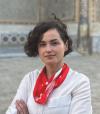Published: Građevinar 75 (2023) 11
Paper type: Scientific research paper
Download article (Croatian): PDF
Download article (English): PDF
Rethinking social housing in terms of environmental sustainability: An empirical analysis
Abstract
Environmental problems are being increasingly recognised as critical strategies for attaining sustainability in social housing, given the persistent demand for social housing in urban areas. However, to remain inexpensive, housing built for low-income groups requires greater environmental compromises. The main objective of this study is to examine social housing projects from an environmental sustainability standpoint and determine whether they have a low environmental impact. This study also aims to inform policymakers about the environmental sustainability of social housing projects and provide an opportunity to review housing policies in terms of environmental sustainability. Six social housing projects were selected under the same climatic conditions from Spain and Turkey, with distinct economic classifications and housing policies. The findings indicate that although social housing built in Spain has a smaller carbon footprint than Turkey throughout the manufacturing (A1–A3) and building (A4–A5) phases, social housing projects in both countries cannot be classified as low-impact housing projects.
Keywordshousing policy, social housing, environmental sustainability, low environmental impact housing, CO2 emissions.



